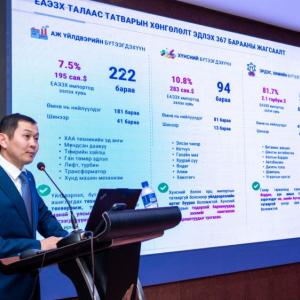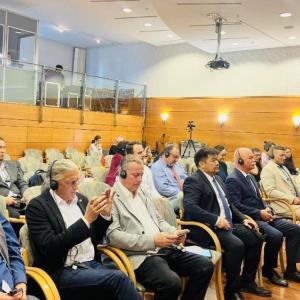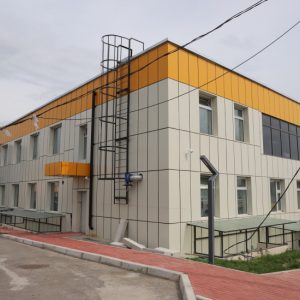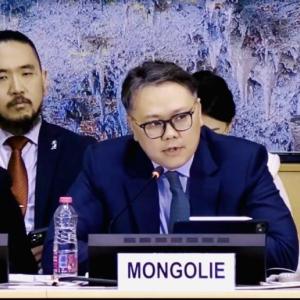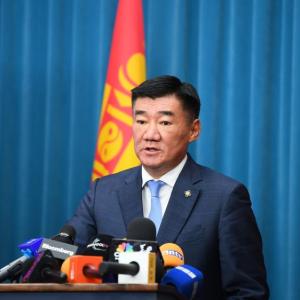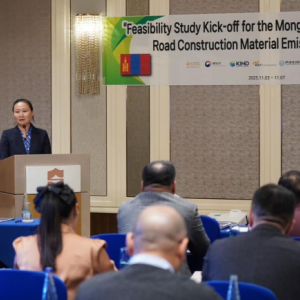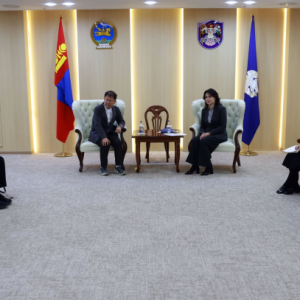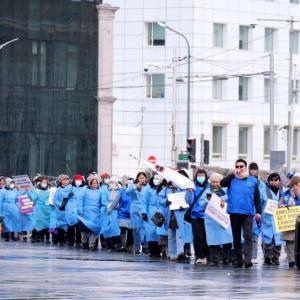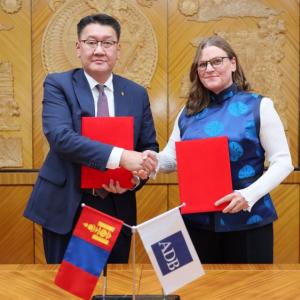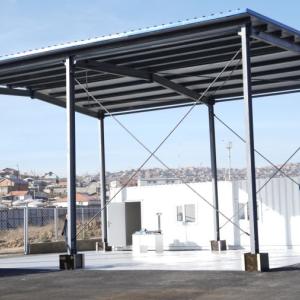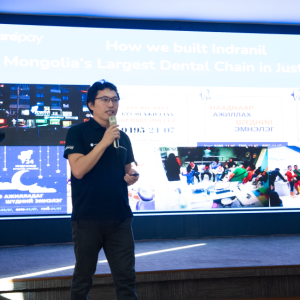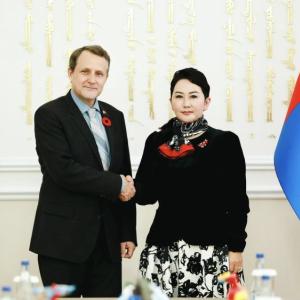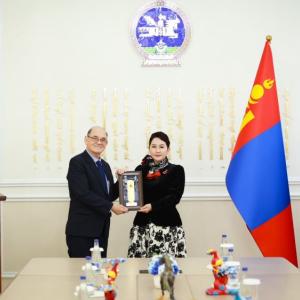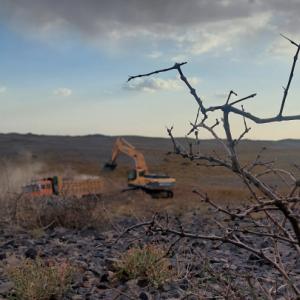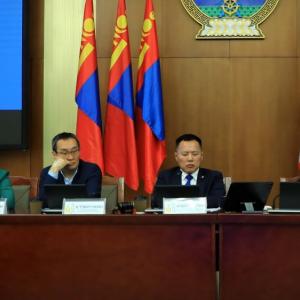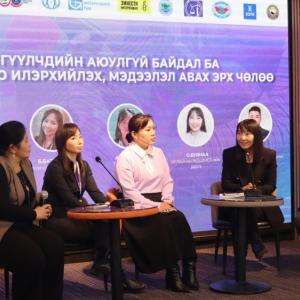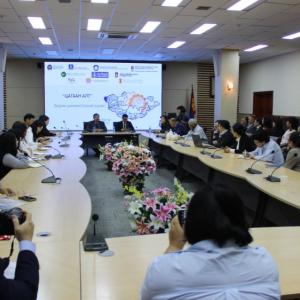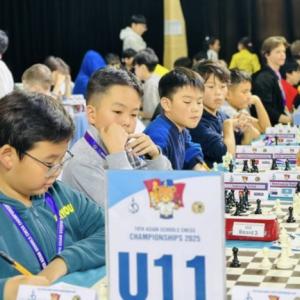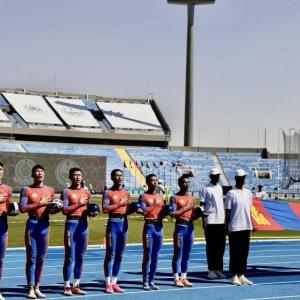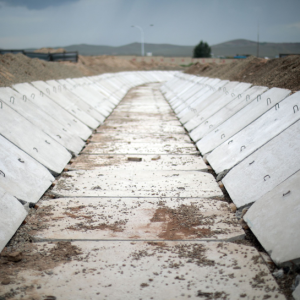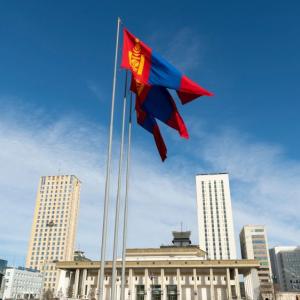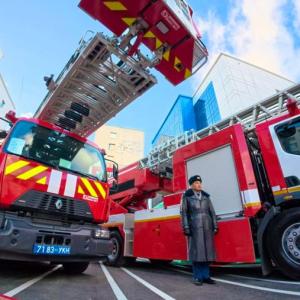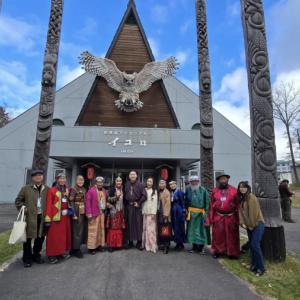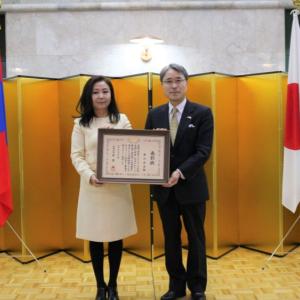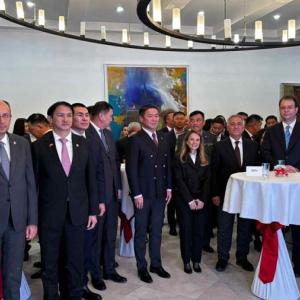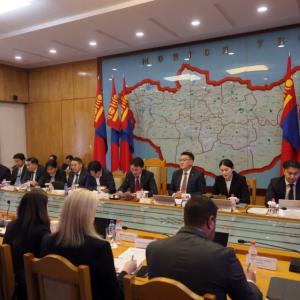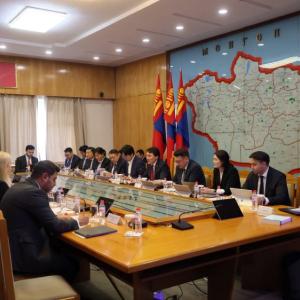“An all-inclusive approach is crucial for peace and sustainable growth”
Society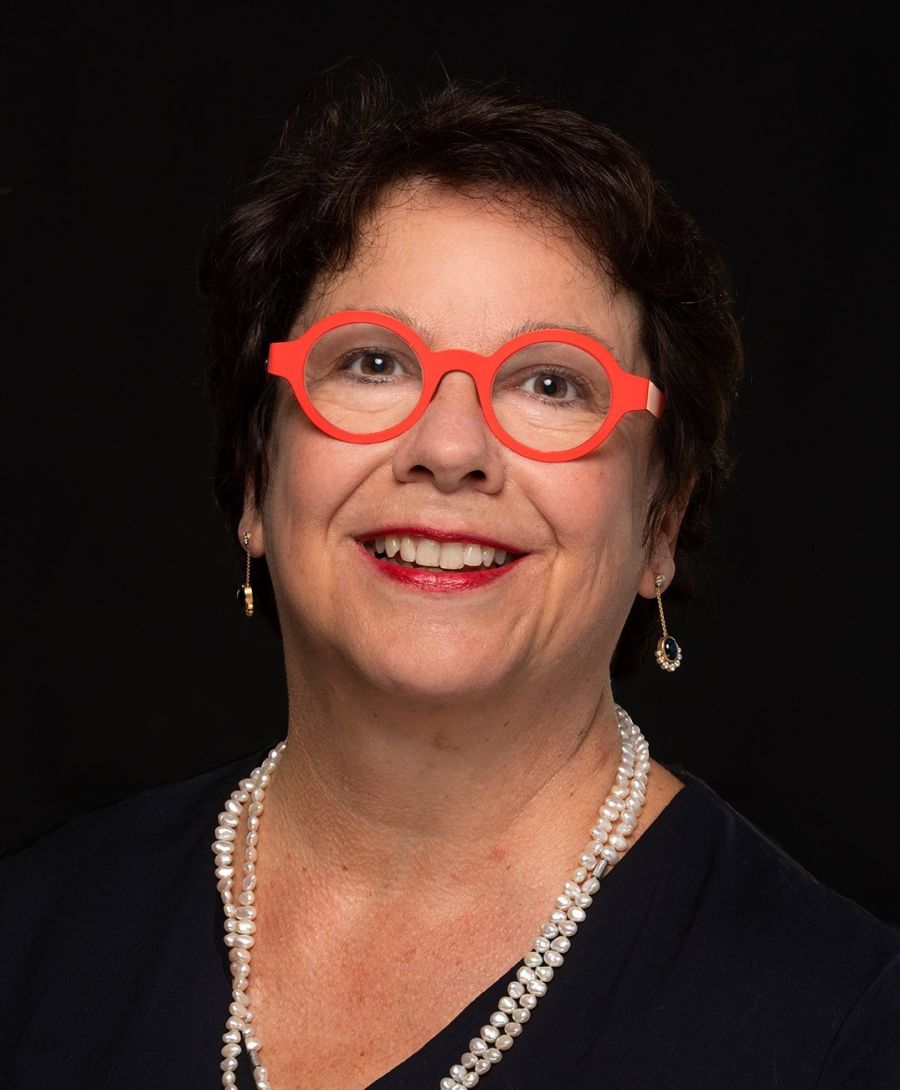
Ulaanbaatar/MONTSAME/. Mrs. Stefanie Burri, Head of Swiss Cooperation in Mongolia, was interviewed to discuss about SDC’s activities including its support to combat gender-based violence in Mongolia.
Welcome, Mrs. Stefanie
Burri, to our MONTSAME Agency. We invite you to discuss the very important
topic of gender equality in Mongolia.
-Thank
you very much for inviting me to
discuss the important topic of gender equality and inclusion and how
Switzerland addresses these issues globally and in Mongolia. The Swiss Agency
for Development and Cooperation (SDC) joined this year’s Equal Respect campaign
launched by the National Agency for Gender Equality and UNFPA. This campaign combines the observance
of International Women’s Day with Mongolian Soldiers Day. I want to take this
opportunity to congratulate all the girls, boys, women, and men of Mongolia.
Why
is gender-based violence such a big issue? Do you have experience working on
this issue?
-Thank you for this
very important question. Switzerland
considers gender equality a basic human right. Evidence clearly shows that gender
equality is crucial to reducing poverty and reaching sustainable development
and economic growth. Women and men must have the same rights to develop their potential and
contribute to a better future. Switzerland
spends around 15 million CHF a year on gender-based violence (GBV) prevention
and response worldwide. Sexual exploitation and abuse in all forms, not only
physical, is not something far away from us—it is not something “others” have to work
on.
In Switzerland, we still have violence against women
and girls. Unfortunately, it is still common in my own country. Moreover, the violence
is often happening at home, in the family, which has a profound negative impact
on children. It is estimated that about 27,000 children a year suffer from
domestic violence in Switzerland.
What do we have to do? We
have to reflect on our stereotypes in our minds, on norms and power relations.
It is a question of education, which starts in the family and continues at
school. Let me share with you an example: My own children, a girl and two boys,
went to the same practical classes at school, working with wood and metal, or
going to cooking classes together. This is normal in Switzerland’s education
system, and no distinction is made between the curriculum for girls and boys. Independent
of gender, sexual orientation, religion, or ethnicity, in families and the
educational system—for everyone, we have to guarantee equal access to
knowledge, equal access to public spaces, and equal access to rights. Equal
access to knowledge guarantees equal empowerment, which is crucial for preventing
possible abuse later on.
What
is the impact of Gender base violence, and why is it so harmful?
- Violence
against women and girls has a profound negative impact on people’s social,
economic, physical, and psychological well-being.
If we are
not preventing different forms of violence, the efforts of you, of me, the
government, of the donor community—to name a
few—to build a sustainable future for a country can
be wasted. We can hardly measure—monetarily
or socially—the harm of violence on one’s current
and future life. Anyone can become a victim of GBV, but we can prevent it from happening
by empowering people, by awareness building, and by adequate government measures.
Economic
research in Mongolia analysed the economic consequences of GBV for Mongolia’s
economy and society. The total cost incurred just in 2019 has been estimated at
over 237 million USD, a significant amount.
Imagine if that
money was invested in awareness building, in the prevention of sexual violence,
or in services for victims? How many lives could have been saved, injuries
treated, and psychological traumas healed, or even better, perhaps it might not
have happened at all.
Why do Switzerland and the SDC fight Gender bases violence? Do you have
a concrete example of how it is combatted?
- Yes, the Swiss Confederation
defined its objectives for Swiss international cooperation for 2021-2024 in
line with Swiss and global priorities, such as:
A) Sustainable economic development, which means economic growth, market development, and
the creation of decent jobs;
B) Environment, natural resources sustainability;
C) Human development: saving lives but
also supporting a country during a time such as the one we have just overcome, the
COVID-19 pandemic;
D) Peacebuilding and governance: promoting
peace, the rule of law, and gender equality.
It is a very
important policy of Switzerland that all intervention follows an all-inclusive
approach. That means a particular intervention must guarantee access to
services and rights for everyone, focusing on the most vulnerable groups, women
and children. We are convinced that an all-inclusive approach is crucial for
peace and sustainable growth.
I am happy to share with you that in 2004, when the Swiss Agency for Development and
Cooperation initiated cooperation
with Mongolia for the first time—supporting
herder families in Mongolia with a cash for herders’ project, the most
vulnerable families were selected. The aim of the humanitarian aid was to help
herders overcome the hardship of a major dzud.
That was the case again during the COVID-19 pandemic,
when Switzerland supported your country with equipment for fighting COVID-19. Hospitals
in rural areas and the hospital for mothers and children in Ulaanbaatar were
prioritized, with the delivery of equipment such as portable X-ray stations.
However, we see also worldwide, in different ongoing
conflicts and wars, that under the category of displaced people, women and
children are the most vulnerable. As they are displaced from their own country
or are refugees in neighboring countries, they are often harmed by violence. We
have to protect them.
Can
you tell us about SDC’s work in Mongolia to combat gender-based violence?
- The Swiss Agency for Development and
Cooperation started its support to combat gender-based violence (GBV) and domestic
violence (DV) in Mongolia in 2016, in partnership with UNFPA.
Data and evidence guided our
actions from the beginning. They are crucial to take the right action and to
orient advocacy. First, a GBV survey conducted in Mongolia in 2018 somehow
shocked society. It showed the magnitude of the problem and opened people’s eyes
to the “naked truth”. The 2018 survey revealed that one in every three women in
Mongolia had suffered from GBV.
Switzerland
provided support through a project to establish 11 new one-stop service centres
(OSSCs) designed to serve survivors of GBV. They were established in seven provinces and four districts of
Ulaanbaatar to provide safe accommodations, as well as health, psychological, and
legal counselling and protection services. Cumulatively, these OSSCs and
shelters have already served over 15,000 women, girls, boys, and men.
Unfortunately, we can see that the majority of survivors are women and
children.
It is important to mention, that
to combat GBV, we have to go for a multidisciplinary response. The problem is
not only a problem for police and the justice system, as it was perceived
before. It is also not only a problem for women; it also touches men and boys.
It is of fundamental importance to protect people and to prevent violence.
As a result of advocacy and
public awareness work, the annual commitments of national and sub-national governments
are increasing. In 2021, the government allocated 185.9 million MNT for
awareness raising and communication activities. Compared to 2019, there was no
such budget.
What is the role of media in fighting gender-based
violence?
- The whole process of development is highly impacted
by access to information. It is important to pay attention to this fact if we want
to improve the awareness of gender-related issues in our society. I would like
to emphasize here that media plays a crucial role. They have a “soft power” to
influence people’s opinions and their decision-making processes. Media and
their selection of information can produce benefits, but they can also cause a harm.
Boys, girls, men, and women, all of us can be equally impacted. Information
providers–journalists, editors, and photographers–should be more sensitised on gender
equality. Skills like critical thinking, problem solving, self-esteem, and teamwork
are important cornerstones of media literacy. They should be learned from childhood
on and be part of a school’s curriculum
Human rights-based and gender sensitive approaches are
imperative to minimize the harmful impacts. As a woman and the mother of three children,
I would like to emphasise that gender and domestic-based violence matters to
everyone. We all have the right
to live in dignity and have a duty to contribute to a better world.
Thank you and your
agency for giving a space to this sensitive topic and the opportunity to
exchange on how to work for a better world for everyone!
 Ulaanbaatar
Ulaanbaatar












